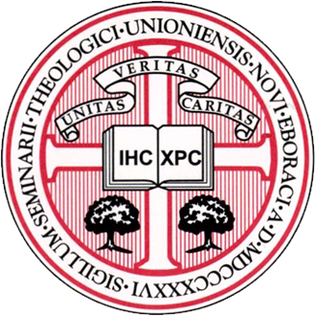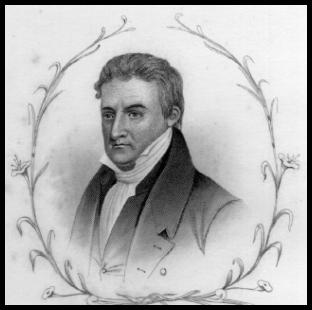
The Presbyterian Church (USA), abbreviated PC(USA), is a mainline Protestant denomination in the United States. A part of the Reformed tradition, it is the largest Presbyterian denomination in the US, and known for its relatively progressive stance on doctrine and ordains women and LGBT community as elders and ministers. The PC(USA) was established by the 1983 merger of the Presbyterian Church in the United States, whose churches were located in the Southern and border states, with the United Presbyterian Church in the United States of America, whose congregations could be found in every state. The similarly named Presbyterian Church in America is a separate denomination whose congregations can also trace their history to the various schisms and mergers of Presbyterian churches in the United States.

The Cumberland Presbyterian Church is a Presbyterian Christian denomination spawned by the Second Great Awakening. In 2015, it had 70,810 members and 709 congregations, of which 51 were located outside of the United States. The word Cumberland comes from the Cumberland River valley where the church was founded.
Greenville Presbyterian Theological Seminary is a confessional Presbyterian seminary in Taylors, South Carolina, United States. Founded in 1986, Greenville Presbyterian Theological Seminary exists to equip preachers, pastors, and churchmen for Christ's Kingdom. The school is modeled on Old Princeton Theological Seminary of the late 19th and early 20th centuries. It teaches the accuracy and doctrinal integrity of the Westminster Confession of Faith, together with the Larger and Shorter Catechisms, as adopted by the Presbyterian Church in America. It is not affiliated with a specific denomination, but graduates of the Seminary minister in denominations such as the Presbyterian Church in America (PCA), Orthodox Presbyterian Church (OPC). Associate Reformed Presbyterian Church (ARP), United Reformed Churches in North America (URCNA), Reformed Church in the United States (RCUS), Reformed Presbyterian Church, Free Church of Scotland, Evangelical Presbyterian Church in England and Wales (EPCEW), Reformed Presbyterian Church of North America (RPCNA), Iglesia Presbiteriana de Brasil, Association of Reformed Baptist Churches of America (ARBCA), Reformed Baptist Network (RBN), Communion of Reformed Evangelical Churches (CREC), Bible Presbyterian Church (BPC), Presbyterian Reformed Church (PRC), and in a number of Independent congregations. The current president of the seminary is Jonathan Master, formerly the Dean of the School of Divinity at Cairn University.

Memphis Theological Seminary is a Cumberland Presbyterian seminary in Memphis, Tennessee. Although it is affiliated with the Cumberland Presbyterian Church, it accepts and trains ministerial candidates from other groups as well. Besides the traditional Master of Divinity (M.Div.), Memphis Theological Seminary also grants the Master of Arts in Christian Ministry (MACM), Master of Arts in Youth Ministry (MAYM), and Doctor of Ministry (D.Min.) degrees. It also administers the Cumberland Presbyterian denomination's Program of Alternate Studies or PAS.

Union Theological Seminary in the City of New York (UTS) is a non-denominational Christian seminary in Morningside Heights, Manhattan, New York City. It is affiliated with neighboring Columbia University. Since 1928, the seminary has served as Columbia's constituent faculty of theology. In 1964, UTS also established an affiliation with the neighboring Jewish Theological Seminary of America.
Reformed Theological Seminary (RTS) is a theological seminary in the Reformed theological tradition with campuses in multiple locations in the United States. Founded by conservatives in the Southern Presbyterian Church, the Presbyterian Church in the United States, in 1966, it serves primarily students from more conservative branches of the Presbyterian and Reformed traditions.
The Upper Cumberland Presbyterian Church is a Christian denomination in the United States that maintains less than 1,000 members among twelve congregations in Alabama and Tennessee.
Cumberland Presbyterian Center is the denominational headquarters of the Cumberland Presbyterian Church, located in Memphis, Tennessee.

Finis Ewing was the primary founder of the Cumberland Presbyterian Denomination on February 4, 1810.
James Wade Knight was a Cumberland Presbyterian minister. He served as that denomination's first Director of Ministry and was the Executive of Kentucky Synod.
Earheart is a surname. Notable people with the surname include:
Thomas Hardesty Campbell was a Cumberland Presbyterian minister, a former president and dean of Memphis Theological Seminary, and a former director of the Historical Foundation of the Cumberland Presbyterian Church. Campbell retired from the seminary in 1974 and served seven years as pastor of the Harrison, Arkansas, Cumberland Presbyterian Church. He was moderator of the General Assembly of the Cumberland Presbyterian Church in 1973, and was a member of White River Presbytery, in Arkansas, for many years.
The Cumberland Presbyterian Church in America is a historically African-American denomination which developed from the Cumberland Presbyterian Church in 1874.
William T. Ingram (1913–2001) was an American theologian. He served as the first President of Memphis Theological Seminary from 1964 to 1978.
Beverly St. John was an elder in the Cumberland Presbyterian Church and served as that denomination's first female moderator of the General Assembly in 1988. The Cumberland Presbyterian denomination had been the first Presbyterian body to ordain women as clergy beginning with Louisa Woosley in 1889. St. John also authored a collection of essays for parents of small children, As the Twig is Bent, in the mid-1960s, and co-authored a book of poetry with Rev. James Knight, "The Prophet is a Snow Man" in 1986.

The Fundamentalist–Modernist controversy is a major schism that originated in the 1920s and '30s within the Presbyterian Church in the United States of America. At issue were foundational disputes about the role of Christianity, the authority of Scripture, the death, Resurrection, and atoning sacrifice of Jesus. Two broad factions within Protestantism emerged: Fundamentalists, who insisted upon the timeless validity of each doctrine of Christian Orthodoxy, and Modernists, who advocated a conscious adaptation of religion in response to the new scientific discoveries and the moral pressures of the age. At first, the schism was limited to Reformed Christianity and centered about Princeton Theological Seminary, but soon spread, affecting every denomination of Christianity in the United States. Denominations that were not initially affected, such as the Lutheran Church, eventually were embroiled in the controversy leading to a schism in the Lutheran Church.
Susan D. Parker is an American Democratic politician from Alabama. A resident of Rogersville, Parker was elected Alabama State Auditor in 1998 and served until 2002.
James Oliver Buswell, Jr. was a fundamentalist Presbyterian educator and institution builder.
Jeffrey Gros was an American Catholic ecumenist and theologian. A member of the De La Salle Christian Brothers, Gros had served as a high school history teacher, university professor, associate director of the Secretariat for Ecumenical and Interreligious Affairs at the United States Conference of Catholic Bishops; director of Faith and Order for the National Council of Churches; and president of the Society for Pentecostal Studies. He is the author or editor of over 20 books, 310 articles, and an uncounted number of book reviews. He died of pancreatic cancer in Chicago, IL, on 12 August 2013 at the age of 75.
G. Thompson "Tommy" Brown was the Professor Emeritus of World Christianity at Columbia Theological Seminary, a missionary, author, and the Director of the Division of International Mission for the Presbyterian Church in the United States (PCUS). He spent much of his life in Korea focusing on strengthening the Presbyterian Church there. His daughter is Mary Brown Bullock, who was President of Agnes Scott College and a foundation executive in developing exchange with China.





